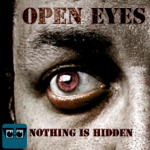
Podcast: Play in new window | Download
Subscribe: RSS
Listen to this episode by clicking the Play Button above.
You can also listen to this episode at Late Night In The Midlands.
Your life IS on the Internet, whether you know it or not. Immesurable damage can be caused because of it. Tune in to find out how, and what you might be able to do to stop it. We also cover the new Net Neutrality information released and what it might mean for you in the near future!
Tune in! You won’t want to miss this one!
The following are the show notes used to record this episode. They are here for your reference and convenience.
PDF FILE FOR NET NEUTRALITY RULES AND REGULATIONS (CLICK TO DOWNLOAD)
NEWS:
http://rightwingnews.com/top-news/oregon-becomes-the-first-state-to-impose-a-per-mile-road-tax/
Oregon will be the first state to impose a per-mile road tax. Drivers will pay a 1.5 cent tax on miles traversed through a device that plugs into your vehicle.
Truth About Cars reported:
Oregon will be the first to issue a per-mile road tax to refill its coffers.
Automotive News reports the state will offer two options to its motorists: pay at the pump, or pay a 1.5-cent rate per mile traversed. The latter will be conducted through a device that plugs into a vehicle’s OBD port, then gathers mileage data to determine how much the motorist will pay in tax.
Right now, the program — set to begin July 1 — will be implemented by the Oregon DOT in partnership with Sanef ITS Technologies America and Intelligent Mechatronic Systems, the latter supplying the aforementioned OBD mileage reader.
Scientists have revealed a huge breakthrough in the search for life on other planets.
Nasa’s Cassini spacecraft has provided scientists the first clear evidence that Saturn’s moon Enceladus exhibits signs of present-day hydrothermal activity – similar to that seen in the deep oceans on Earth.
If confirmed, it would make the moon Enceladus the only other known body in the solar system besides Earth where hot water and rocks interact underground.
That activity would make the moon an even more attractive place in the hunt for microbial life.
On Earth, scientists have found weird life forms living in hydrothermal vents on the ocean bottom where there’s no sunlight.
The implications of such activity on a world other than our planet open up unprecedented scientific possibilities, Nasa said.
‘These findings add to the possibility that Enceladus, which contains a subsurface ocean and displays remarkable geologic activity, could contain environments suitable for living organisms,’ said John Grunsfeld astronaut and associate administrator of NASA’s Science Mission Directorate in Washington.
‘The locations in our solar system where extreme environments occur in which life might exist may bring us closer to answering the question: are we alone in the Universe.’
http://mytechnologyworld9.blogspot.in/2015/03/too-much-praise-can-turn-your-kids-into.html
Make your kid believe he’s a “special snowflake” and you risk turning him into a narcissistic jerk, according to a new Dutch study.
Narcissistic individuals think they’re better than everyone else, live for personal success and expect exceptional treatment, explained the authors of the study that appeared in the latest issue of the journal Proceedings of the National Academy of Sciences. When narcissists experience failure, they’re not pleasant to be around, sometimes even lashing out violently, the study notes
The study evaluated 565 Dutch children ages 7 through 12 for narcissist tendencies such as feelings of superiority and self-satisfaction. The investigators also questioned the children’s parents about how, when and how often they offered praise and other feedback.
The kids whose parents consistently told them they were superior to other children, no matter what, scored higher on measurements for narcissism compared to kids who were given a more realistic view of themselves, the investigators found. That’s because over-praising children can lead them to believe they are special people who deserve special treatment all the time, explained Brad Bushman, a professor of communication and psychology at Ohio State University and one of the study’s authors.
http://wakeupfromyourslumber.com/with-tpp-at-make-or-break-point-fast-track-foes-prepare-for-battle/
The 12-nation, corporate-friendly Trans-Pacific Partnership “is at a make-or-break point,” according to Australian Trade Minister Andrew Robb, who said that if the U.S. is able to overcome opposition from leading figures like Sen. Elizabeth Warren (D-Mass.), the deal could be inked within weeks. The Sydney Morning Herald, owned by Fairfax Media, reports: “Mr. Robb and other close observers have told Fairfax that negotiators are poised to strike a ground-breaking deal which would bring huge economic benefits to Australia and mark a major strategic win for the United States, as it wrestles with China for regional leadership.” But, Robb added, Warren’s “ferocious attack on the TPP has caused Congress to baulk at giving the Obama administration the Fast-Track authority it needs to seal a deal during the only realistic window of political opportunity prior to the US presidential election in November 2016.” Though hardly alone in her opposition, Warren has argued that implementation of the secretly negotiated trade deal would boost corporate power while making it harder to prevent another financial crisis. She has taken specific issue with ‘Investor-State Dispute Settlement’ (ISDS) provisions, which she claims would “tilt the playing field in the United States further in favor of big multinational corporations.”
SHOW NOTES:
Net neutrality rules and regulations were released.
They are dry as hell, but I went through them at least in a cursory way.
Here’s a few things that stood out to me the most…
But today, the FCC abandons those policies. It reclassifies broadband Internet access service as a
Title II telecommunications service. It seizes unilateral authority to regulate Internet conduct, to direct
where Internet service providers put their investments, and to determine what service plans will be
available to the American public. This is not only a radical departure from the bipartisan, market-oriented
policies that have served us so well for the last two decades. It is also an about-face from the proposals
the FCC made just last May.
So why is the FCC changing course? Why is the FCC turning its back on Internet freedom? Is it
because we now have evidence that the Internet is not open? No. Is it because we have discovered some
problem with our prior interpretation of the law? No. We are flip-flopping for one reason and one reason
alone. President Obama told us to do so
But if this Order manages to survive judicial review, these will be the consequences: higher
broadband prices, slower speeds, less broadband deployment, less innovation, and fewer options for
American consumers. To paraphrase Ronald Reagan, President Obama’s plan to regulate the Internet
isn’t the solution to a problem. His plan is the problem.
In short, because this Order imposes intrusive government regulations that won’t work to solve a
problem that doesn’t exist using legal authority the FCC doesn’t have, I dissent.
The only limit on the FCC’s discretion to regulate rates is its own
determination of whether rates are “just and reasonable,” which isn’t much of a restriction at all.
Just as pernicious is the FCC’s new “Internet conduct” standard, a standard that gives the FCC a
roving mandate to review business models and upend pricing plans that benefit consumers.18 Usagebased
pricing plans and sponsored data plans are the current targets. So if a company doesn’t want to
offer an expensive, unlimited data plan, it could find itself in the FCC’s cross hairs. 19
Consider that activists promoting this rule had previously targeted neither AT&T nor Verizon
with their first net-neutrality complaint but MetroPCS—an upstart competitor with a single-digit market
share and not an ounce of market power. Its crime? Unlimited YouTube. MetroPCS offered a $40-permonth
plan with unlimited talk, text, Web browsing and YouTube streaming. The company’s strategy
was to entice customers to switch from the four national carriers or to upgrade to its newly built 4G Long
Term Evolution network. Whatever the benefits of MetroPCS’s approach, activists have said “there can
be no compromise.
Or take T-Mobile’s Music Freedom program, which the Internet conduct rule puts on the
chopping block. The “Un-carrier” lets consumers stream as much online music as they want without
charging it against their monthly data allowance. Consumers love it, judging by T-Mobile’s rapid
subscriber growth. Yet Music Freedom too stands on the brink of a ban—with the FCC “mindful of the
concerns raised in the record that sponsored data plans have the potential to distort competition by
allowing service providers to pick and choose among content and application providers to feature on
different service plans.” 21
Affordable, prepaid plans are now also suspect. These plans have enabled millions of lowincome
households to have mobile service. And yet the Order plays up the “concern that such practices
can potentially be used by broadband providers to disadvantage over-the-top providers.”22 In other
words, these plans aren’t the all-you-can-eat plans endorsed by the FCC, and so they, too, may violate the
Internet conduct standard.
In all, the FCC will have almost unfettered discretion to decide what business practices clear the
bureaucratic bar, so these won’t be the last business models targeted by the agency. And though the FCC
spends several paragraphs describing seven vaguely worded factors that it will consider when applying
the Internet conduct standard—end-user control; competitive effects; consumer protection; effect on
innovation, investment, or broadband deployment; free expression; application agnostic; and standard
practices23—these factors lead to more questions than they answer.
Net neutrality proponents are already bragging that it will turn the FCC into the “Department of
the Internet”27—and it’s no wonder. The FCC’s newfound control extends to the design of the Internet
itself, from the last mile through the backbone. Section 201(a) of the Communications Act gives the FCC
authority to order “physical connections” and “through routes,” 28 meaning the FCC can decide where the
Internet should be built and how it should be interconnected. And with the broad Internet conduct
standard, decisions about network architecture and design will no longer be in the hands of engineers but
bureaucrats and lawyers.
So if one Internet service provider wants to follow in the footsteps of Google Fiber and enter the
market incrementally, the FCC may say no. If another wants to upgrade the bandwidth of its routers at
the cost of some latency, the FCC may block it. Every decision to invest in ports for interconnection may
be second-guessed; every use of priority coding to enable latency-sensitive applications like Voice over
LTE may be reviewed with a microscope. How will this all be resolved? No one knows. 81-year-old
laws like this don’t self-execute, and even in 317 pages, there’s not enough room for the FCC to describe
how it would decide whether this or that broadband business practice is just and reasonable. So
businesses will have to decide for themselves—with newly-necessary counsel from high-priced attorneys
and accountants—whether to take a risk.
From the rulings:
The no-blocking rule we adopt today prohibits broadband providers from blocking access
to lawful Internet content, applications, services, and non-harmful devices. 257
Your life is online.,.. everything that you do is forever more going to be on the internet.
If you send messages over the internet, they are known and remembered.
Teens these days are doing sexting, thinking that they are free and clear of anything that could happen to them. Thinking that they will never have to worry about that stuff getting released.
However, that is far from the reality.
Hell look at the hacking incidents with the celebrities last year.
That alone should tell people that nothing they do on the net is safe.
Your life really is online, as well, because any and all things that you do are tracked, collated, and collected in the depths of server farms.
This topic was brought up because of a video i ran across, where an experiment was done…
People were brought into a tent to see a “psychic” and they had information revealed to them that they were shocked by. How could someone know all of this?
They were told who their best friends were, how many relationships they had been in, what caused the breakups, etc.
How many and what tattoos they had…
what school they went to and what they did there..
the people were shocked, right?>
Maybe you would be, too.
It went on, though.
He told them their bank account numbers, knew their credit card numbers, their PIN numbers,
he knew the balances of their accounts…
He told one girl that she had spent 200 bucks on alcohol the previous month, and why did she need that much?
how much money they spent on clothes…
Finally they revealed how it was done. A curtain drops and it’s revealed that computer screens, with their pictures, their bank accounts, their Facebook pages, on and on, were on display for all to see.
They had shared information on the net, given out personal information, making them identifiable, and able to be tracked, collated, and databased.
Enough so that a person could use all of their information against them, if he so desired.
http://www.youtube.com/watch?v=F7pYHN9iC9I
PRISM
PRISM things…
Surveys on the internet…
Cyber Warfare…
Google orwellian…
http://www.activistpost.com/2015/03/google-gives-new-meaning-to-orwellian.html
“THE internet is stuffed with garbage. Anti-vaccination websites make the front page of Google, and fact-free ‘news’ stories spread like wildfire. Google has devised a fix – rank websites according to their truthfulness.”
Great idea, right?
Sure it is.
The author of the article lets the cat out of the bag right away with his comment about “anti-vaccination” websites.
These sites will obviously be shoved into obscurity by Google because they’re “garbage”…whereas “truthful” pro-vaccine sites will dominate top ranked pages on the search engine.
“A Google research team is adapting [a] model to measure the trustworthiness of a [website] page, rather than its reputation across the web. Instead of counting incoming links, the [ranking] system – which is not yet live – counts the number of incorrect facts within a page. ‘A source that has few false facts is considered to be trustworthy,’ says the team…The score they compute for each page is its Knowledge-Based Trust score.”
“The [truth-finding] software works by tapping into the Knowledge Vault, the vast store of facts that Google has pulled off the internet. Facts the web unanimously agrees on are considered a reasonable proxy for truth. Web pages that contain contradictory information are bumped down the rankings.”
Cashless society…













 Neely Worldwide Productions, Inc
Neely Worldwide Productions, Inc  Amazon
Amazon  Barnes & Noble
Barnes & Noble